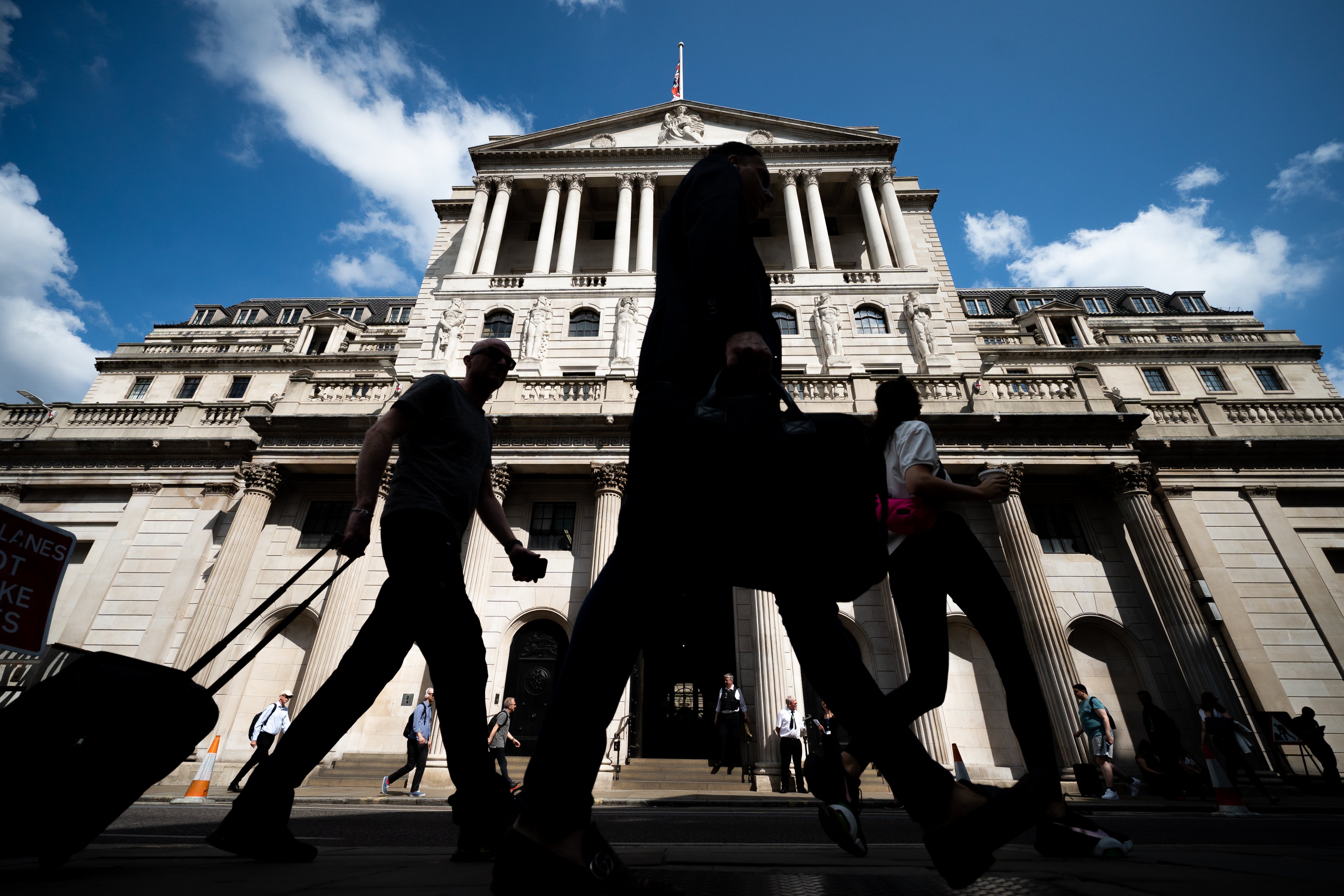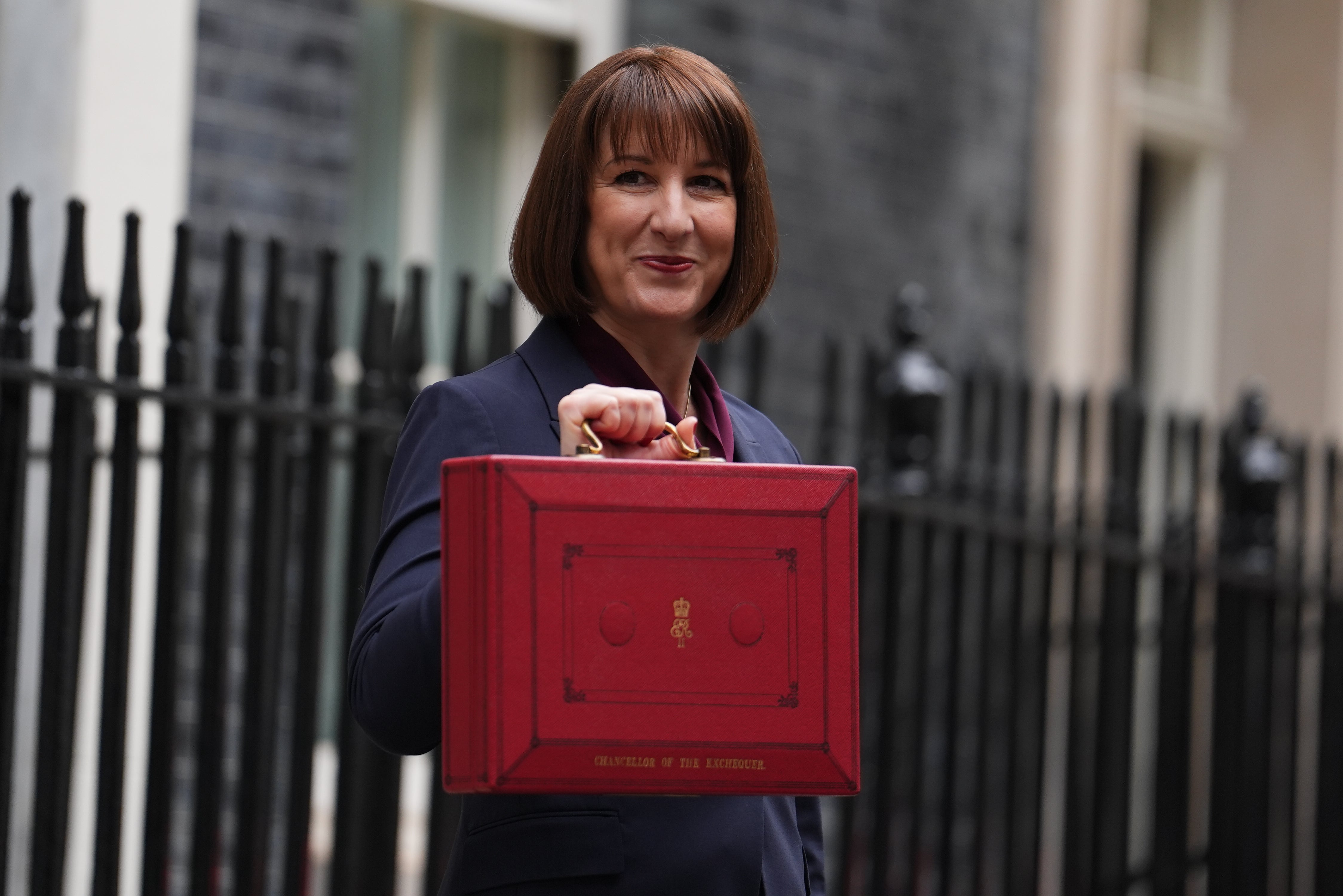Inflation has rebounded back above the Bank of England’s 2 per cent target, driving up the cost of living at an accelerated rate.
Having hit a 41-year high of 11.1 per cent in 2022, consumer price inflation (CPI) had dropped to a three year low of 1.7 per cent in September.
But the latest Office for National Statistics data, published on Wednesday morning, showed inflation has risen once again in October to hit 2.3 per cent.
The Bank of England seeks to control inflation – the speed at which the cost of goods and services are rising – by raising and lowering the cost of borrowing via its base interest rate, impacting mortgage-holders and other borrowers.
The rise is greater than the 0.5 per cent hike economists at the Bank of England had forecast. The rise was due to energy bill hikes, after Ofgem’s price cap was raised by around 10 per cent to £1,717 for an average household.

ONS chief economist Grant Fitzner said: ”Inflation rose this month as the increase in the energy price cap meant higher costs for gas and electricity compared with a fall at the same time last year.”
“These were partially offset by falls in recreation and culture, including live music and theatre ticket prices. The cost of raw materials for businesses continued to fall, once again driven by lower crude oil prices.”
In its latest projections, issued earlier this month, the central bank said it expected inflation to rise slightly next year to hit 2.75 per cent, before falling back below its 2 per cent target.
The central bank cut interest rates in August for the first time in more than four years, lowering them to 5 per cent from an 11-year high of 5.25 per cent, followed by a further cut this month.
More cuts are expected in the months ahead, to the relief of homeowners contending with large mortgage hikes. But significant unforeseen future increases in inflation could put some pressure on hopes that policymakers at the central bank will continue to cut interest rates.
Economists at Pantheon Macroeconomics had also suggested that a predicted rebound in air fares would contribute to a higher rate of inflation in October – but that these would be slightly offset by a fall in motor fuel prices and an easing in food inflation.

The Chief Secretary to the Treasury, Darren Jones, said: “We know that families across Britain are still struggling with the cost of living. That is why the Budget last month focused on fixing the foundation of our economy so we can deliver change.
“That includes boosting the National Minimum Wage, freezing fuel duty and protecting working people’s payslips from higher taxes.
“But we know there is more to do. That is why the Government is focused on economic growth and investment so we can make every part of the country better off.”
Joe Nellis, economic adviser at MHA, said: “While the jump in headline inflation from 1.7 per cent to 2.3 per cent marks the biggest rise since October 2022, the Bank of England will also put this into context that rates are not nearly comparable to those in excess of 10 per cent recorded two years ago.
“In the short-term, this spike has been caused by the rise in October of the energy price cap by 9.5 per cent, increasing the money that each household is spending on their energy bills, but also influenced by the long-term domestic pressures of a tight labour market and rising employment costs.”
Labour’s October Budget also likely contributed to the unexpected rise, he adds, with increased public sector expenditure, higher minimum wage, and new costs for businesses.
“Adding to these challenges, the strengthening of the US Dollar and the potential of tariffs imposed by President-elect Donald Trump will make US imports to the UK more expensive,” says Mr Nellis.
“Given this unfavourable economic outlook, the BoE will be quietly content if inflation remains below 3 per cent over the coming months.”







